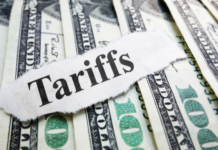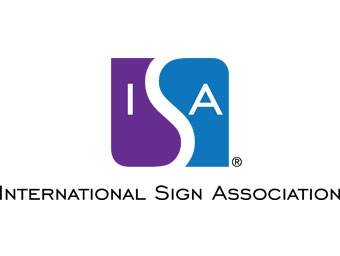You’ve decided the sign industry is your calling. You’ve pinpointed your niche, embraced the long hours and hard work of business ownership and are ready to outperform the competition.
Now comes the critical question: What will you name your business?
With countless sign companies competing for attention, how do you create a name that stands out? More importantly, how can your name set the foundation for your business’s success?
Ensure Your Brand Communicates Who You Are
Your business name is more than just a label—it’s a reflection of your identity, values, and the services you provide. Ask yourself: What message do I want to convey to potential customers?
Every business has a unique story. Does your name capture the essence of your journey, your vision, or the passion driving your venture?
Take Studio Dzo, my sign shop, as an example. (This is Liz speaking here!) The name combines “Studio,” highlighting a design-focused approach, with “Dzo,” a Tibetan term for a hybrid yak-cow that embodies strength, agility and productivity. This concept of “greater than the sum of its parts” mirrors how our team blends traditional design expertise with engineering, fabrication and sign code knowledge to deliver exceptional results.
Our name tells a story: we are a design-driven sign shop with classically trained designers who produce elevated work. This unique positioning has attracted architectural firms to collaborate with us on local and national projects. By focusing on our brand and sharing our story, we’ve built a reputation that fuels our success.
The takeaway? A well-chosen name communicates your brand’s essence and helps you stand out in a crowded market.
Ensure Your Brand Can Grow with Your Business
The name you choose for your business should align with your ideal customers and the market you want to attract—not just today but in the future.
For example, the word “Studio” might resonate with design firms and architects but might not appeal to general contractors or retail chains. Think about who you want to attract and whether your name speaks to that audience.
When I (This is Joe speaking here!) started my company, Sign Tech International, it was just two guys in a small home office with a landline. But the name sounded like a large, established, national company. This impression helped us land big projects, as it gave potential clients confidence in our ability to handle large-scale work.
This isn’t about being misleading—it’s about creating a name that supports your goals. A scalable name sets the tone for how others perceive your business.
If your name reflects a small, local, family-owned shop (which is perfectly fine!), you’re likely to attract customers looking for that type of business. On the other hand, names like Super Cheap Banners or Bob’s Vehicle Wraps will likely position you for specific types of work within a narrower market. That’s a valid branding strategy if it fits your goals, but it limits how your business might grow over time.
The bottom line: Your name should match your vision for your business’s future, allowing your brand to scale as your ambitions grow.

And Most Importantly: Ensure the Name is Available
Before falling in love with a name, ensure it’s not already trademarked or being used by another business in your industry. Overlooking this step can lead to costly legal and financial issues you definitely want to avoid.
If you unintentionally use a trademarked name, you could face:
- Cease-and-desist letters
- Costly rebranding (changing your business name, logo, and marketing materials)
- Legal fees or fines
- In extreme cases, loss of profits earned under the infringing name
I (This is Joe again; Liz is too smart to make this mistake!) learned this lesson the hard way when I started my second sign shop. I was sued for using a trademarked word in the name. While our lawyer thought we had a good shot at winning, it still cost me over $40,000 in legal fees to settle. On top of that, I had to spend significant time, money and energy rebranding the entire business.
Could I have won the case? Maybe. But trademark lawsuits often cost at least $100,000 to fight in federal court, which wasn’t an option for us.
The takeaway: Always verify name availability before moving forward. Visit USPTO.gov to perform a trademark search, and consult your attorney, who can guide you through the process and help with any necessary filings. Taking this step upfront can save you from expensive headaches down the road.

Name Your Baby, and Watch it Grow!
The process of choosing a business name in the sign industry requires careful consideration and strategic planning. It’s not merely about finding a catchy phrase but about creating a brand identity that resonates with your target audience, reflects your values and stands the test of time. By investing time and effort in researching and selecting a unique and legally sound name, you’re laying a strong foundation for your business’s future success. Remember, your business name is your first impression. Make it count.
You’ve got this! Believe in your ability to succeed! Now go and build a great sign business!
Joe Arenella: Founder of Sign Tech International, a sign shop with 60 employees that made signs for national chains, local developers, and big projects like the Dallas Cowboy Stadium. He turned from sign shop owner to software founder! With SignTracker (an Inktavo company), he makes job tracking and sign quoting easy for sign shop owners.
Elizabeth Arenella Toynes (Liz) grew up in the sign industry as Joe’s daughter. After swearing off the industry and earning her degree in accounting, she got wrangled back in. She now co-owns and operates Studio Dzo, a multidisciplinary design studio that specializes in designing and building beautiful, inclusive, and effective signage and wayfinding that elevate brands and experiences, with her husband Russell in Austin, Texas.
You can also find Joe and Liz on the Behind the Signs Facebook Community for industry tips and free resources, and on the Behind the Signs Podcast where they discusses the ins and outs of owning a sign business.










